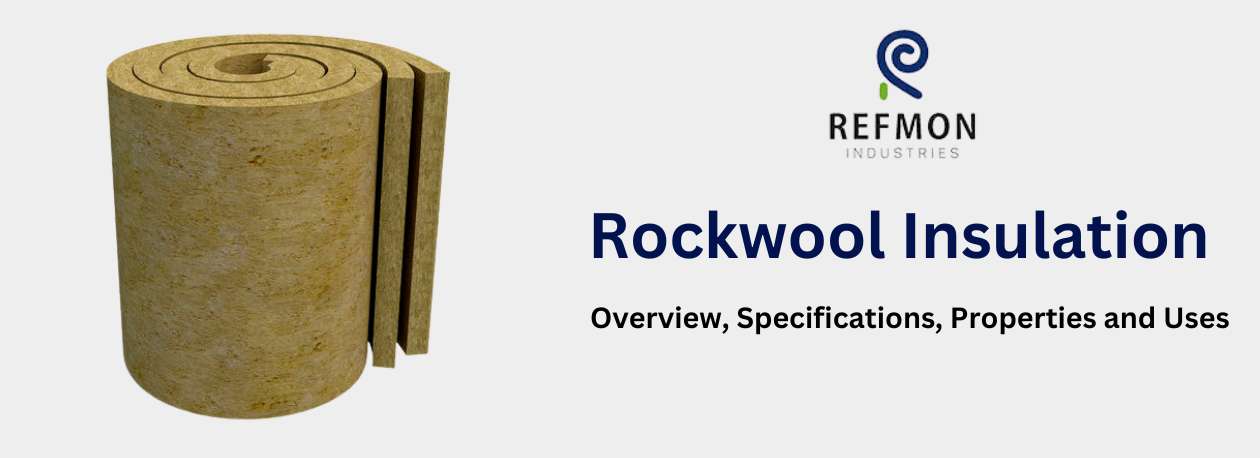
Rockwool Insulation: Overview, Specifications, Properties and Uses
One sort of insulation derived from natural minerals and rocks is rock wool. Because of its remarkable capacity to block sound and heat, it is the most often utilized type of insulation in the building sector worldwide.
There is lot of LRB insulation manufacturers in India who sells Rockwool in cheap prices.
Acoustic Performance
All ROCKWOOL products make excellent acoustic absorbers due to the inherently random orientation of ROCKWOOL fibers; the ROCKWOOL Thermal Rock S line has been extensively studied and has a proven track record of being utilized to improve the acoustic performance of any application significantly.
Properties of Rockwool
- 100% fire resistant, classified as CLASS I
- The product's noise reduction coefficient (NRC) is extremely high.
- Extremely Low K-Value ( Thermal Conductivity )
- Uniformity of fiber distribution, diameter, and lay pattern are distinguishing characteristics of
- Temperature range of - 50 to 750 degrees Celsius.
- Complies with IS, BS, and ASTM standards.
Where Can You Find Rock Wool Insulation?
Rockwool insulation can be installed in the same places as fiberglass or other types of insulation, such as walls, floors, ceilings, attics, and crawlspaces. It is, nevertheless, especially well-suited for rooms on the cold north side of the house and interior rooms that require sound deadening, such as media rooms or music studios.
Rockwool LRB Mattresses are flexible rock fibre mattresses made of stable rock fibres and sewn with wire mesh.
Fibre glass Insulation is one of the hot insulation materials.
How high is the R-value of Rockwool insulation?
While fiberglass insulation has an R-value of approximately 2.2 to 2.7 per inch, Rockwool has an R-value of approximately 3.0 to 3.3 per inch.
A wet slump, like a dry slump, occurs when the materials become wet. This forces the insulation down, exposing a large piece of the wall to the environment and potentially causing serious damage.
Lifespan of Rockwool
This form of insulation, made of cellulose or mineral wool, can last up to 100 years but is prone to settling and compacting. It is also frequently utilized as a habitat for rodents, rendering it inefficient and moist.
ROCK WOOL INSULATION WITH GLASS WOOL
Glass Wool (Fiber Glass) is composed of glass fibers, whereas Rock Wool (Mineral Wool) is composed of stone and glass. Thermal and acoustic insulations are made from both materials. Team Sankalp assists clients in a material selection based on their application.
Glass Wool Insualtion: Rock Wool Insulation features sheet metal top and bottom (profiled or flat perforated) and a wide range of uses. Some of these are discussed more below.
- Industrial Structures (Roof and Wall Panels)
- False Limits
- Cold Storage Facilities
- Warehouses
- Facades
- Partition walls.
GLASS WOOL BENEFITS - ROCK WOOL FIRE RESISTANT
- It can endure temperatures of up to 1000 degrees Celsius and maintain size and dimension stability for up to 2 hours.
- Resistant to Moisture
- Increased R-Value, which affects temperature and sound reduction
- Lightweight with an increased load-bearing capacity
- Installation is simple and quick.
- Available in a variety of colors and designs
- Energy is saved significantly.
- It also serves as the best acoustic insulation.
Standard Specifications are available
- Panel thickness: 50 mm to 100 mm -TWIGA INSULATION thickness to be determined
- The minimum density is 16 kg/m3, and the maximum density is 24 kg/m3 with a standard deviation of +/- 8 kg/m3.
LRB Insulation is composed of fine fibres spun from selected stones/minerals and bonded with a thermosetting resin.
Conclusion
Rock wool insulation is a cost-effective cellulose insulation made from molten rock fibers, which has been shown to lower energy consumption and increase comfort in residential homes. With the emergence of new home construction techniques in recent years, there has been a surge in interest in alternative insulation methods. While fiberglass and cellulose insulation can be effective, the latest trend is to turn to materials that have been around for more than 100 years- rock wool insulation.